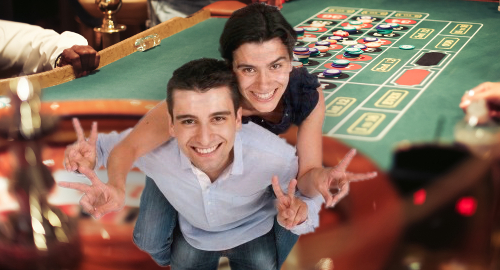 New sibling research is adding weight to the theory that problem gamblers are born, not made.
New sibling research is adding weight to the theory that problem gamblers are born, not made.
A new study published Thursday in the scientific journal Neuropsycho-pharmacology showed that the biological siblings of individuals who struggle to control their gambling activity display similar markers of impulsivity and risk-taking, suggesting that the subjects share pre-existing genetic vulnerabilities to gambling disorders.
The study, which was conducted by researchers at the University of British Columbia (UBC), involved 20 problem gamblers, 16 biological siblings of problem gamblers and a control group with no gambling problems. The subjects completed questionnaires, underwent cognitive tests and had their brains monitored by an MRI machine while playing a simulated slot machine game.
Both the problem gambler and sibling groups reported higher levels of risk-taking and impulsivity than the control group, including an increased likelihood of acting impulsively while experiencing negative emotions. The two groups were also more likely to make larger wagers when they made risky choices.
However, the siblings’ brains showed a similar lack of response to rewards as did members of the control group. The researchers suggested that this could indicate that the development of problem gamblers’ brains had to some degree been influenced by their gambling experiences. (Other studies have suggested a link between adult gambling disorders and childhood stress and/or trauma.)
The researchers said their findings suggest that individuals may have a pre-existing vulnerability to gambling disorders. The small size of the study’s groups makes it difficult to extrapolate definitive conclusions but researchers hope other scientists will continue to investigate their findings.
A 2014 University of Iowa study found that first-degree relatives of pathological gamblers were eight times more likely to develop gambling issues than individuals who didn’t share a problem gambler’s DNA. Other studies have shown distinct differences in brain activity – including difficulty anticipating rewards and assessing risks as well as seeing patterns where none exist – between problem gamblers and individuals who don’t suffer from such disorders.
The theory that problem gamblers are born and not made is also supported by statistics in numerous jurisdictions that have undergone a dramatic expansion of gambling options with no corresponding rise in the number of problem or pathological gamblers.